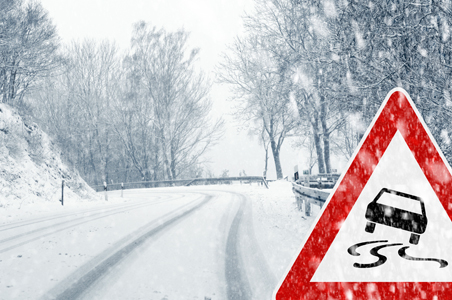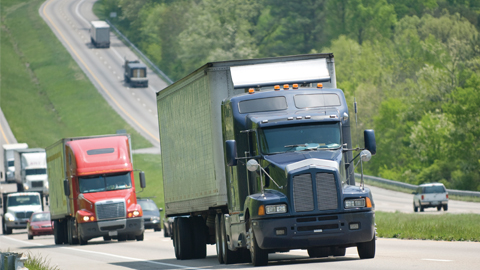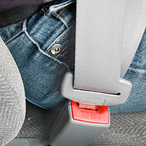Preventing Truck Rollover Crashes


Few accidents are as dangerous for the professional driver as a truck rollover crash. According to large truck crash statistics, rollovers are responsible for 50 percent of all large truck occupant fatalities.1
In addition, the cost to repair or replace equipment and cargo following a truck rollover can be substantial. Recovery, towing and clean-up expenses resulting from spilled fuel or hazardous cargo can drive these costs even higher. But none of these costs compare to the cost of liability when others are hurt.
Given the seriousness of truck rollover crashes, it is important to take preventive measures. Here are some steps you can take to help prevent them:
- Watch your speed. The most common cause of rollover accidents is driving too fast. In 45 percent of rollover accidents, excessive speed is the greatest contributing factor.2 Traveling too fast around a curve, mainly on highway entrance and exit ramps, accounts for two-thirds of these speed-related rollovers. Slowing down is key to preventing them. Posted advisory speed limits for curves are intended for passenger vehicles, not large trucks, particularly tank trailers and trucks with a high center of gravity. Large trucks should reduce their speed even further.3 Excessive speed, even on a straight roadway, can be dangerous too. It gives you less time to react to hazards and your vehicle will be less stable if you need to take evasive action. Be extra cautious driving down steep grades to avoid excessive speeds.
- Avoid distractions. Inattention is the second biggest factor, contributing to 23 percent of rollovers.4 Examples of inattentiveness include being distracted by objects next to the roadway, talking on a cell phone or texting. It only takes a momentary distraction for you to overlook a hazard, misjudge a turn or drift off of the road. If you have to make a sudden move, you could lose control.
- Get adequate rest. Many rollover crashes are attributed to drowsy driving.5 Getting adequate rest is important to make sure you are alert. Avoid driving late at night. This is when the urge to sleep is the strongest, no matter what you do to fight it.
- Check your truck and cargo. Know your cargo and how it is loaded and secured. The higher the center of gravity, the higher the risk of a rollover. Make sure your cargo is secured to prevent it from shifting when you turn. Check tires and brakes during your pre-trip inspections to ensure they are in good working condition.
- Stay healthy. Some rollover accidents are attributed to drivers being ill or losing consciousness while driving.6 Get regular physicals. If you do not feel well, be proactive and consult your doctor. If you become ill while driving, find a safe place to park and seek help.
Sources
1 2020 Large Truck Fatality Facts, Insurance Institute for Highway Safety, https://www.iihs.org/topics/fatality-statistics/detail/large-trucks#comparison-of-large-truck-and-passenger-vehicle-crashes
2, 4, 5, 6 Analysis of Large Truck Rollover Crashes, American Association of Automotive Medicine, 2008, https://www.ncbi.nlm.nih.gov/pmc/articles/PMC3256782/
3 CMV Driving Tips – Too Fast for Conditions, FMCSA, https://www.fmcsa.dot.gov/safety/driver-safety/cmv-driving-tips-too-fast-conditions
Doc#: LCT126




